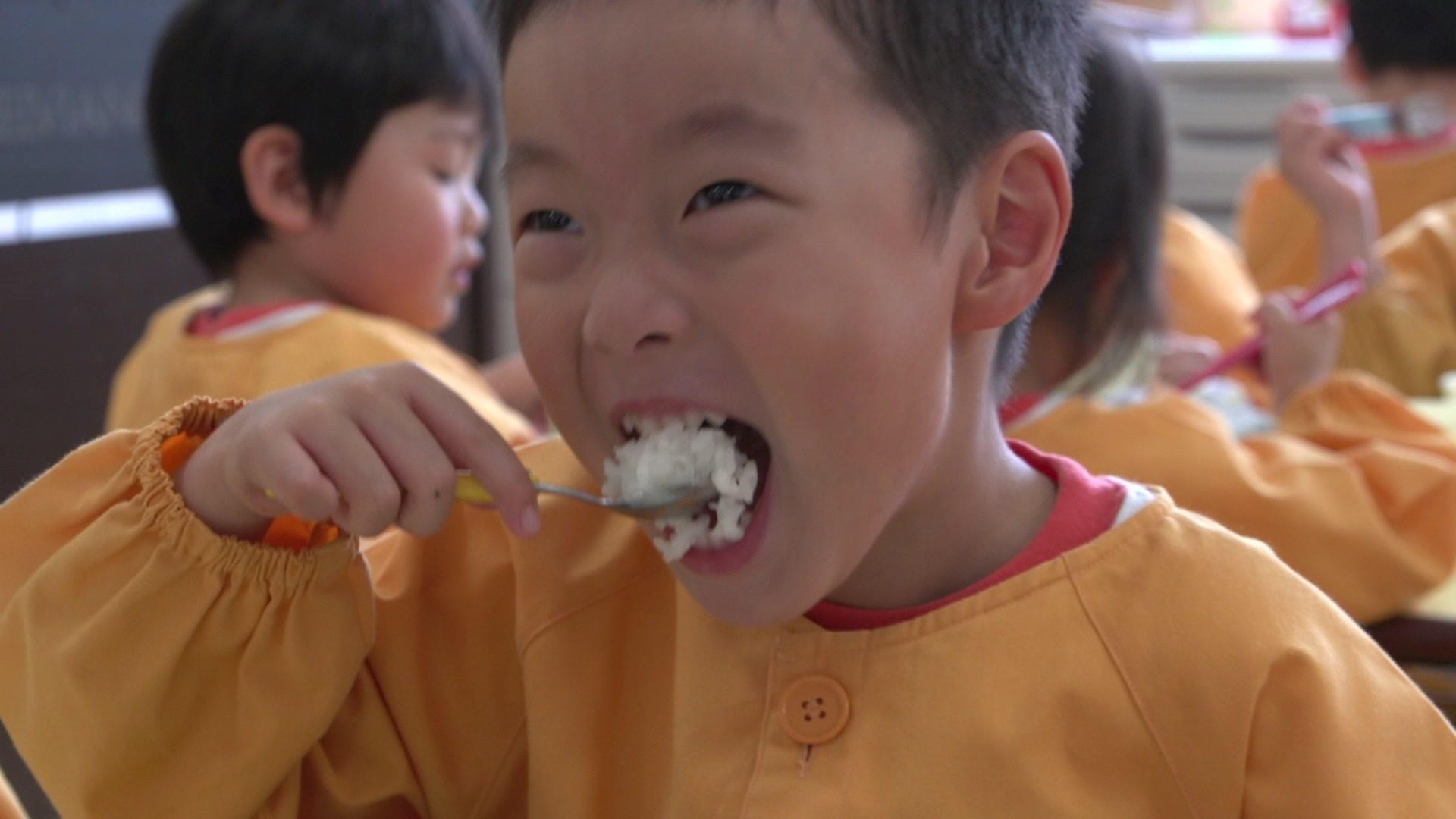What is Sumo wrestling?
- Published
Japan has a new sumo wrestling champion
Sumo wrestling is one of the biggest sports in Japan. It is a highly popular, traditional sport that dates back hundreds of years, a bit like football in the UK.
Sumo wrestlers can be very famous and face lots of pressure from the public.
People from all over the world train and compete to be sumo wrestlers and the highest title they can win is grand champion.
What is sumo?
Japan's traditional sport dates back hundreds of years.
Two wrestlers face off in a circular ring and try to push each other to the ground or out of the ring.
There are six tournaments each year in which each wrestler fights 15 bouts.
Each tournament begins on a Sunday and runs for 15 days, ending also on a Sunday.
Wrestlers, who traditionally go by one fighting name, are ranked and the ultimate goal is to become a yokozuna, or grand champion.
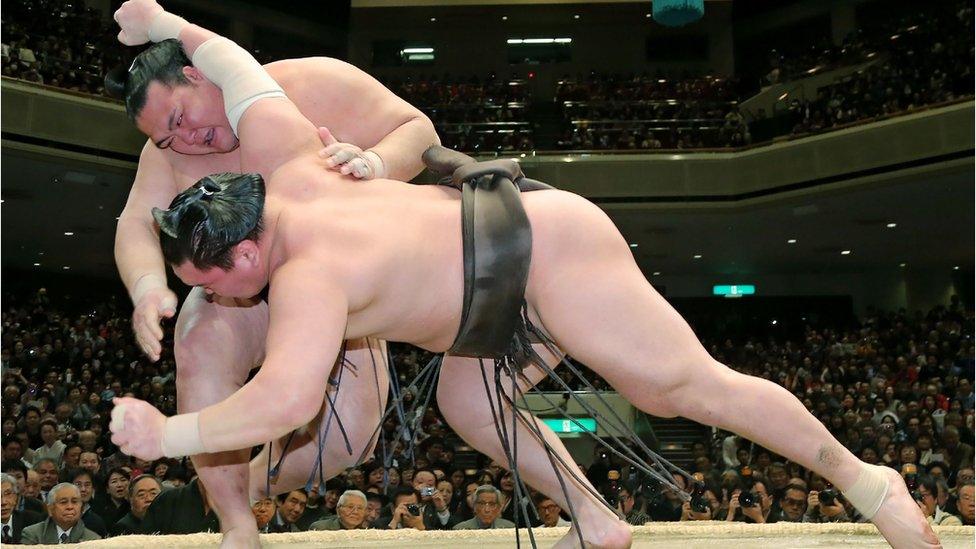
Kisenosato Yutaka in action
Now, for the first time in almost 20 years, a local Japanese sumo has become grand champion.
Wrestlers from other parts of the world have been dominating the sport, and the win for a local sumo is seen as a massive boost for the traditional sport.
Kisenosato Yutaka won the first sumo tournament of 2017. He is now the first Japanese-born wrestler to win a tournament since 1998.
He made his debut in 2002 and it's taken 73 tournaments for him to become a grand champion.
Kisenosato weighs a whopping 178kg which is about 28 stone.
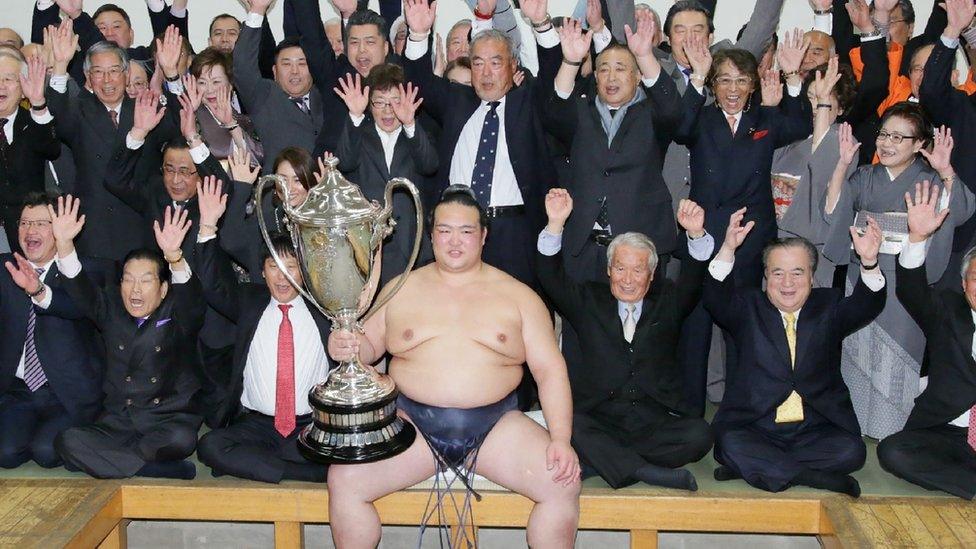
Kisenosato with the Emperor's Cup trophy
In recent years, fewer kids in Japan have been taking up the sport, partly because it is seen as a tough, and very strict life.
Young sumo wrestlers go through tough training, moving away from home to eat, sleep and practise with other young trainees.
Those at the top of the sport are also expected to be role models - and can be criticised if they make mistakes.
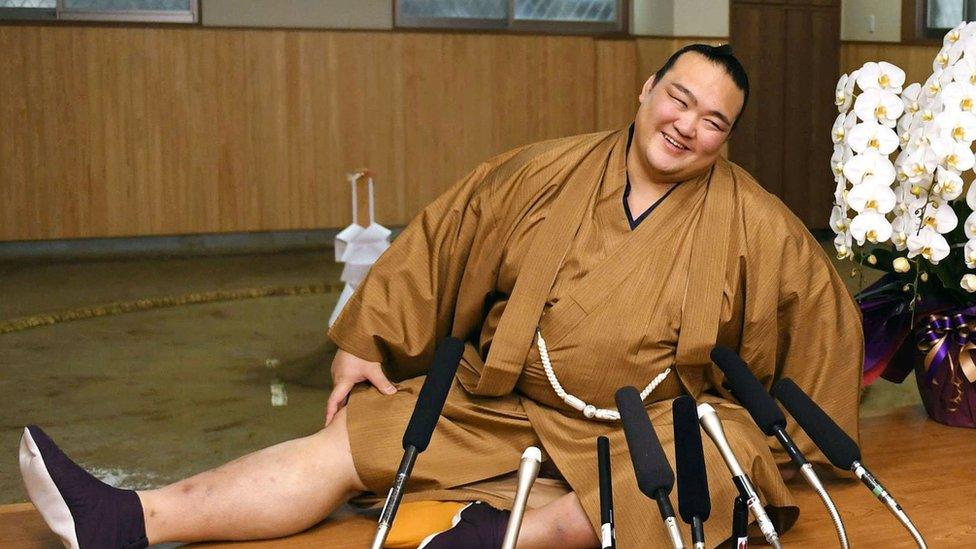
Kisenosato Yutaka - the 2017 Grand Sumo Tournament winner
Sumo must also compete with the rising popularity of football and baseball in Japan, which draw crowds of young Japanese fans.
But the sport is attractive to wrestlers from other nations, who can earn a good living. Wrestlers have come from Estonia, Bulgaria, Georgia, China, Hawaii and Egypt, as well as Mongolia and American Samoa.
After the tournament victory on Monday, Kisenosato said he was pleased to be holding the Emperor's Cup trophy at last, "I've finally got my hands on it and the sense of pleasure hasn't changed," he said. "It's hard to put into words but it has a nice weight to it."
- Published14 December 2016
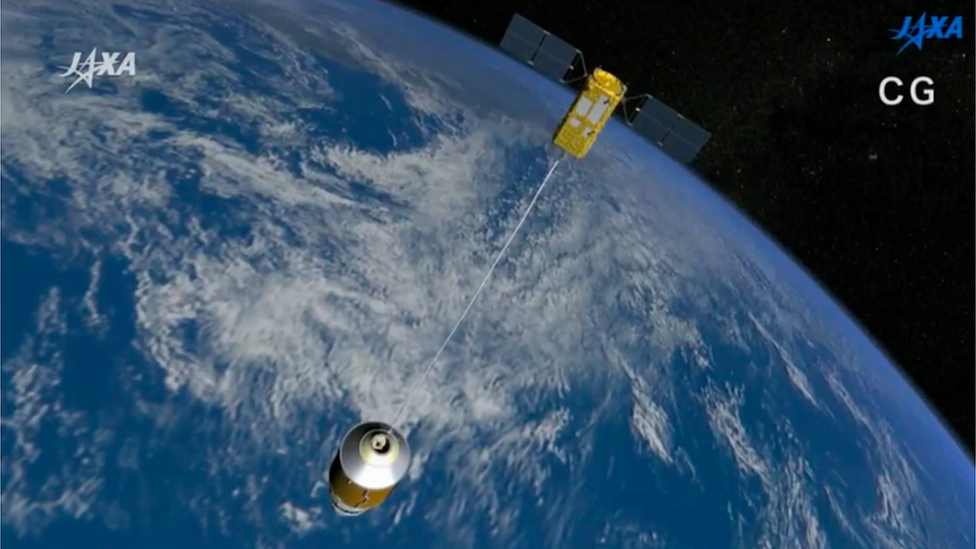
- Published5 February 2016
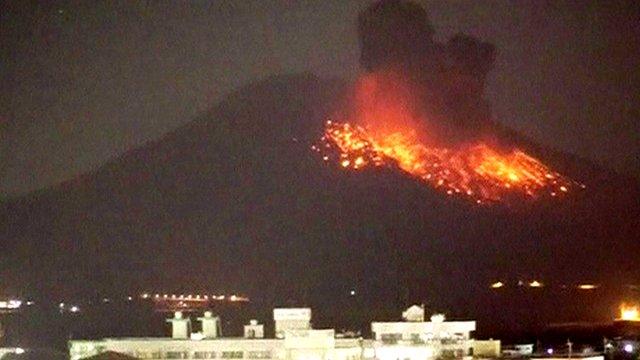
- Published2 February 2016
